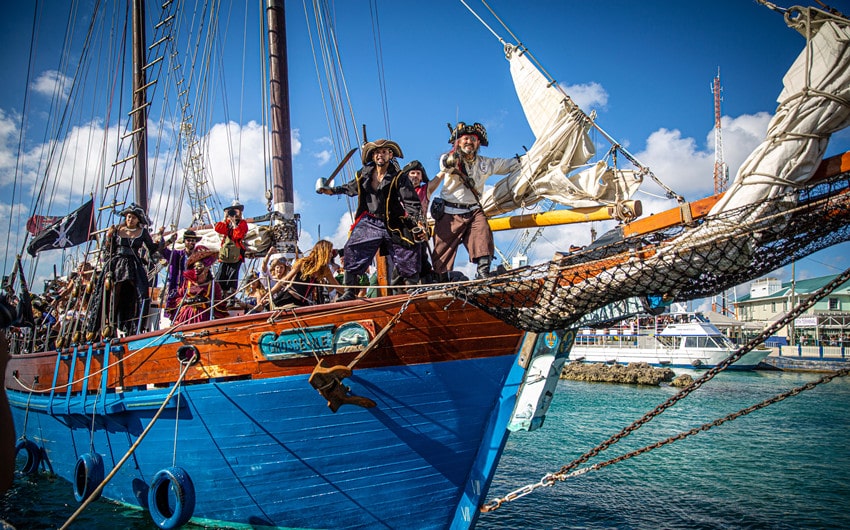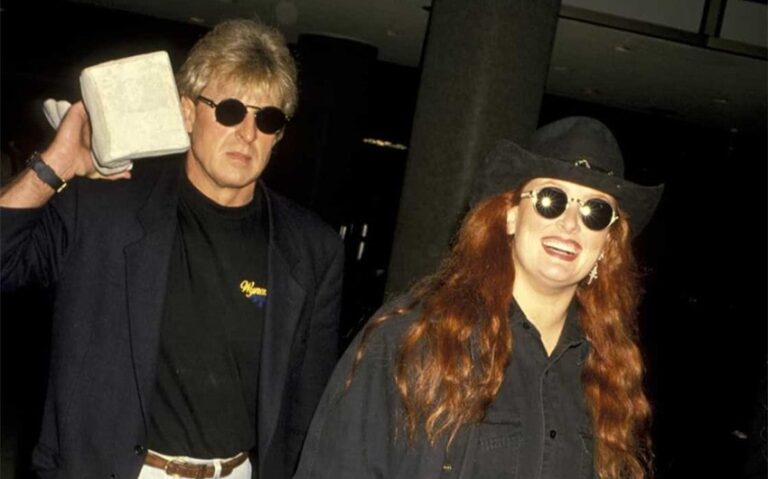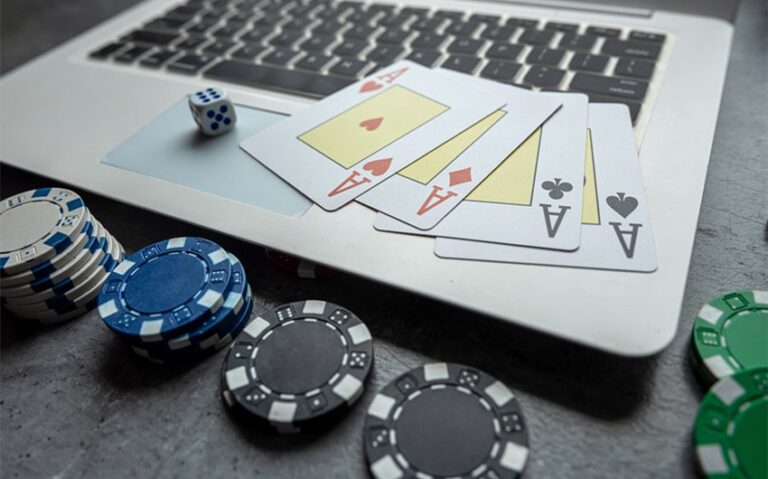Popular Pirate Phrases and Sayings You Need to Know
Pirate culture has always captivated our imaginations with its tales of adventure, hidden treasures, and fearless sea rogues. One of the most charming aspects of this world is the unique and colorful language used by pirates. Whether you’re a fan of pirate movies or just love the idea of sailing the high seas, understanding pirate talk adds an extra layer of fun. In this article, we’ll explore some of the most intriguing pirate phrases and sayings.
Common Pirate Phrases and Their Meanings
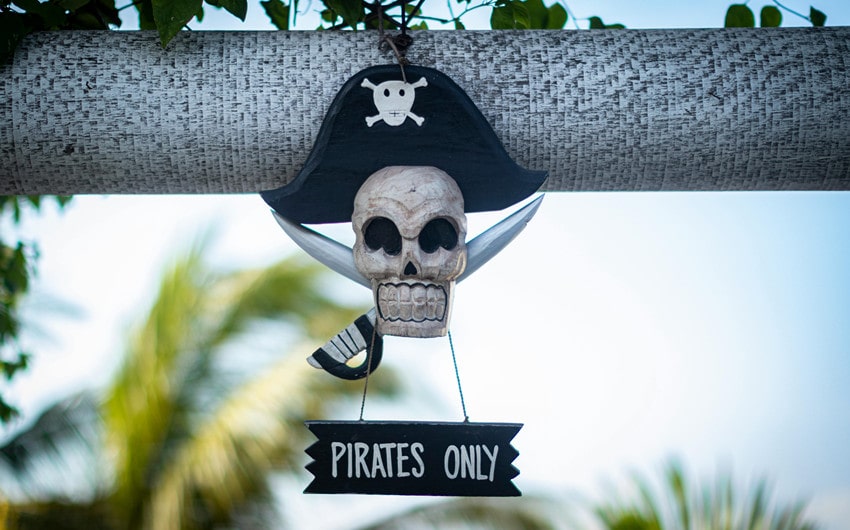
1. Ahoy!
This is the quintessential pirate greeting, equivalent to saying “hello.” Pirates used “Ahoy!” to hail a ship or a person, drawing attention in a boisterous and enthusiastic manner. It’s a versatile term that could be used in various contexts, from hailing a fellow sailor to calling out to a ship on the horizon.
2. Arrr!
Perhaps the most iconic of all pirate expressions, “Arrr!” is an exclamation that can convey a wide range of emotions, from agreement and excitement to frustration and defiance. The exact meaning depends on the context in which it’s used, making it a flexible term for any seafaring situation.
3. Avast!
This command means “stop” or “halt.” It was often used by pirates to get the attention of their crew or to bring activities to a standstill. “Avast!” might be shouted to halt preparations, to silence the crew, or to indicate an immediate need for caution or attention.
4. Aye, aye!
When a pirate says “Aye, aye!” it means they have received and understood an order and are ready to comply. It’s a way of acknowledging commands with a sense of urgency and respect, ensuring the captain or superior knows their directives will be followed promptly.
5. Yo ho ho!
Often associated with the image of a jolly pirate, “Yo ho ho!” is an expression of cheer or excitement. It’s commonly found in pirate songs and shanties, embodying the adventurous and carefree spirit of pirate life. This phrase is often linked with the traditional image of pirates celebrating with a bottle of rum.
Pirate Sayings and Their Origins

1. “Dead men tell no tales”
This phrase means that if you kill someone, they can’t reveal secrets or information. Pirates used it to justify eliminating captives who might disclose their whereabouts or plans. It underscores the ruthless nature of pirate life, where silence was ensured by any means necessary to protect the crew and their loot.
2. “Walk the plank”
This infamous pirate punishment involved forcing a captive to walk off a wooden plank extended over the side of the ship into the sea. While popularized by fiction, historical evidence of its actual use is scarce. The threat of “walking the plank” served as a psychological tool to instill fear and ensure compliance among prisoners and crew members.
3. “Pieces of eight”
Refers to Spanish silver coins, known as reales, which were often cut into eight pieces to make change. These coins were a common form of currency among pirates in the Caribbean. The term symbolizes wealth and the pursuit of treasure, integral to pirate lore and the economics of piracy.
4. “Scallywag”
A derogatory term used by pirates to describe a deceitful or worthless person. Its origin is uncertain but it was commonly used to insult someone’s character. The word reflects the rough, judgmental nature of pirate society, where trust was hard to come by, and betrayal was common.
5. “Heave ho”
A phrase used to encourage coordinated effort when lifting or pulling something heavy, like hoisting a sail or lifting an anchor. It exemplifies the teamwork required on a pirate ship. The chant-like rhythm helped synchronize the crew’s efforts, making laborious tasks more manageable.
6. “Blow the man down”
A term that means to knock someone over or kill them. It likely originated from the forceful winds on the sea or the powerful cannon blasts during ship battles. The phrase captures the violent and often deadly confrontations pirates faced, both with nature and enemies.
7. “Three sheets to the wind”
Refers to being very drunk. In sailing terms, “sheets” are the ropes controlling the sails. If three sheets are loose, the sail flaps uncontrollably, likened to a drunk person’s unsteady state. This saying highlights the pirates’ reputation for heavy drinking and rowdy behavior.
8. “Yo ho ho and a bottle of rum”
A cheerful phrase from pirate songs and shanties, reflecting the pirates’ love for rum and their jovial, carefree nature. It was popularized by Robert Louis Stevenson’s novel “Treasure Island.” The phrase evokes the image of pirates enjoying their spoils and camaraderie.
9. “Weigh anchor and hoist the mizzen”
Means to raise the anchor and set the sail, signaling the ship’s departure. It’s a command for preparing the ship to leave a port or anchorage. This phrase encapsulates the readiness and excitement of setting off on a new voyage or adventure.
10. “Run a rig”
To play a joke or prank on someone. It involves trickery or deception, reflecting the mischievous nature often associated with pirate life. Pirates were known for their cunning and cleverness, often using tricks to outsmart enemies and allies alike.
11. “Batten down the hatches”
A command to secure the ship’s hatches to prepare for rough weather. It means to prepare for trouble or difficult situations. This saying is still used today to indicate getting ready for an impending challenge or storm.
12. “Clear the decks”
An order to remove unnecessary items from the deck to prepare for battle or a storm. It’s used metaphorically to mean getting ready for action. This phrase reflects the discipline and readiness required in pirate life, especially in the face of combat or natural threats.
13. “Shiver me timbers”
An expression of surprise or disbelief. It originates from the idea of a ship’s wooden frame shivering or shaking due to strong winds or cannon fire. This colorful phrase captures the dramatic and often perilous life at sea.
14. “Swab the deck”
A command to clean the ship’s deck by mopping it. It highlights the importance of cleanliness and maintenance on a ship. Keeping the deck clean was crucial for safety and hygiene, reflecting the daily routines necessary for shipboard life.
15. “In the offing”
Means something is imminent or about to happen. In nautical terms, the “offing” is the part of the sea visible from shore but beyond anchorage, indicating an approaching ship. The phrase suggests anticipation and the inevitability of forthcoming events, common in the unpredictable life of pirates.
Pirate Slang for Everyday Objects
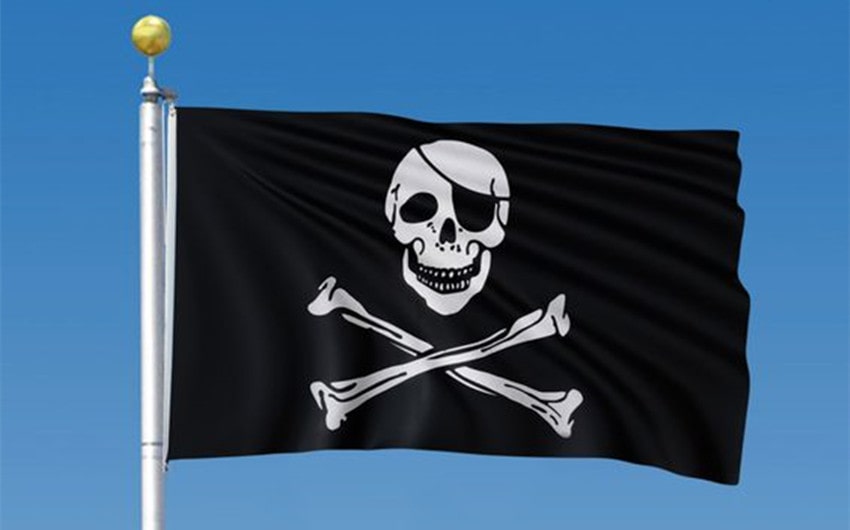
Image source: Pinterest
1. Jolly Roger
The Jolly Roger is the infamous black flag flown by pirates to signal their identity. It typically features a white skull and crossbones or other fearsome symbols. The sight of the Jolly Roger was meant to instill fear and encourage a quick surrender from the targeted ship, avoiding a battle and minimizing damage and casualties.
2. Crow’s Nest
The crow’s nest is a small, high platform built on the main mast of a ship, used as a lookout point by sailors. Positioned at the highest accessible point, the crow’s nest provided an elevated vantage point for spotting distant ships, land, or hazards like icebergs. It was a crucial part of navigation and early warning systems on pirate ships.
3. Davy Jones’ Locker
Davy Jones’ Locker refers to the bottom of the sea, where drowned sailors and shipwrecks are said to rest. In pirate lore, it is synonymous with death at sea, embodying the ultimate fate of those who perish in the ocean. The term “Davy Jones” is often depicted as a malevolent spirit of the sea, and his locker is a euphemism for an underwater grave.
4. Black Spot
The black spot is a traditional pirate method of delivering a death threat or a verdict of guilt. It is a piece of paper or a token with a blackened mark, often handed to a pirate as a symbol of impending doom or punishment. Receiving a black spot typically meant the recipient’s days were numbered.
5. Poop Deck
The poop deck is the highest deck at the stern of a ship, traditionally used for observation and navigation. It is named from the French word “la poupe,” meaning stern. On pirate ships, the poop deck was often the captain’s domain, where commands were issued and navigational decisions were made.
6. Cutlass
A cutlass is a short, broad sword with a slightly curved blade, favored by pirates for its versatility in close combat. Its design makes it effective for slashing and thrusting, and it was the weapon of choice for boarding actions and hand-to-hand fighting on ships.
7. Grog
Grog is a diluted alcoholic beverage, typically a mix of rum and water, sometimes flavored with lemon or lime juice and sugar. It was a common drink among sailors and pirates, both for its inebriating effects and its ability to keep water supplies drinkable during long voyages.
8. Spyglass
A spyglass is a small handheld telescope used by pirates and sailors to spot distant ships, land, or potential threats. The spyglass allowed for early detection and navigation, providing a tactical advantage in identifying targets or dangers from afar.
9. Swashbuckler
A swashbuckler refers to a daring and adventurous pirate or sailor known for their swordsmanship and bravery. The term evokes images of flamboyant and heroic characters who engage in swashbuckling exploits and adventures.
10. Bilge Rat
A bilge rat is a derogatory term used by pirates to describe someone they consider lowly or contemptible. The bilge is the lowest part of a ship where water and waste accumulate, and calling someone a bilge rat implies they are as worthless as the vermin found there.
11. Plunder
Plunder refers to the stolen goods or treasure that pirates seize during their raids. It includes anything of value taken from captured ships, coastal towns, or other targets. The term encapsulates the primary motive behind many pirate activities.
12. Booty
Booty is another term for the valuables and treasures acquired by pirates through their exploits. It includes gold, silver, jewels, and other precious items. The promise of booty was a significant incentive for pirates to undertake risky ventures.
13. Scuttlebutt
Scuttlebutt originally referred to the cask of drinking water on a ship, but it later came to mean gossip or rumors among sailors. Pirates would gather around the scuttlebutt to exchange news and stories, making it a focal point for social interaction.
14. Deadlights
Deadlights are the eyes, used metaphorically by pirates to refer to a person’s eyes in a disparaging manner. The term suggests that the person’s eyes are as lifeless or useless as closed portholes on a ship.
15. Landlubber
Landlubber is a term used by pirates and sailors to describe someone who is inexperienced or awkward at sea. It refers to a person more accustomed to land than the ocean, often implying clumsiness or naivety in nautical matters.

